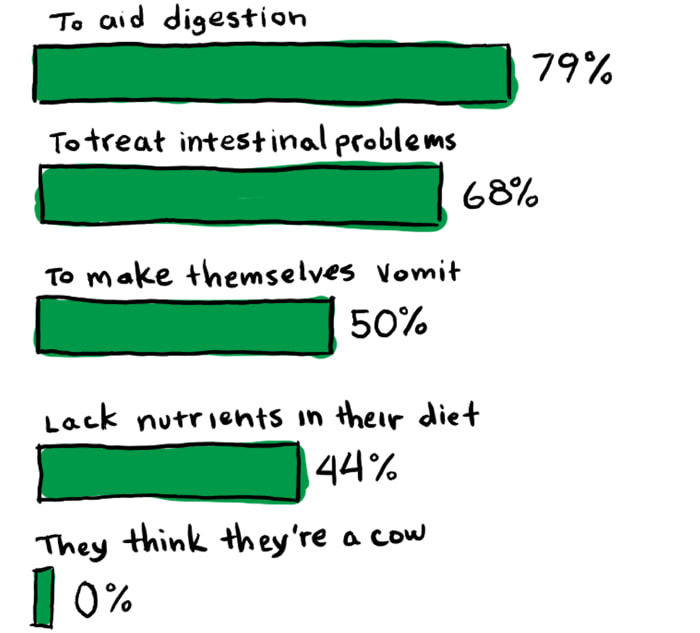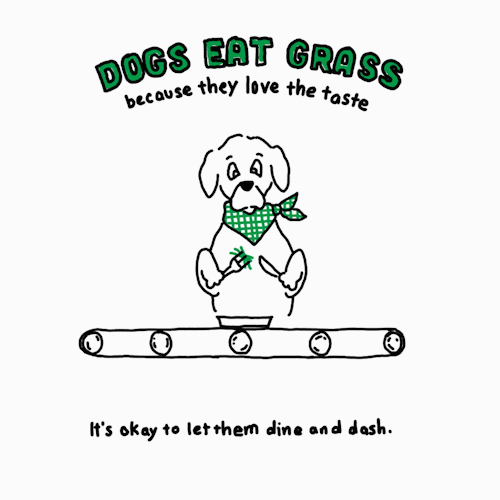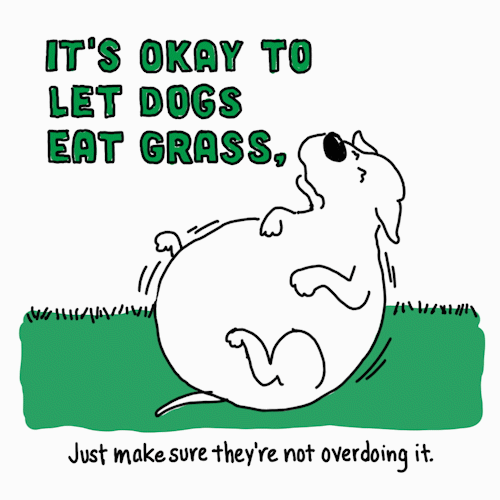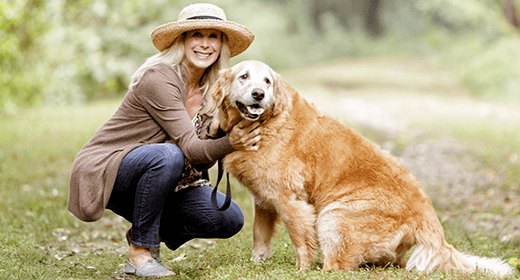

In a recent IAMS poll of dog owners,* 69% said their dog eats grass. That’s quite a lot. Owners also have quite a lot of theories on why their dog is noshing on the lawn.

It’s not just modern-day canines that eat grass. It’s likely something that has been going on for thousands of dog years. According to
Opens a new windowDr. Tammie King, Applied Behavior Technical Leader at Waltham Petcare Science Institute, “It is actually normal canine behavior. It has to do with innate behavior from canine ancestors. Potentially a remnant behavior.”
Dr. King also shared this with us: “A lot of people think dogs eat grass when they’re feeling ill, but studies have shown that’s not necessarily true.”
But then why do dogs eat grass? To get to the (grass)root of this issue, we asked
Opens a new windowDr. Jo Gale, BVetMed CertLAS MRCVS Senior Manager of Global Science Advocacy at Waltham Petcare Science Institute.
'There's no one reason. They just like the taste, texture and feel of the grass.'
So it’s perfectly fine if your pooch decides to have an occasional grass snack. Who doesn’t crave a salad every now and then?
However …

If your dog is getting adequate nutrition, there’s no need to worry. But the experts we talked with asked dog owners to please keep in mind the following:
· Grass that’s been treated with weed killer or pesticides should be off the menu.
· If your dog is eating grass excessively or routinely vomiting from eating grass, consult your vet.

Looking for the perfect dog food to pair with their side of sod slaw? IAMS has the answer for that, too.
*Surveyed U.S. dog owners, age 18+
Sample Size: n=201
Fielded May 8 to May 10, 2020


It depends on the breed of dog, but your pet's senior years generally begin at age 7. Louise Murray, DVM, director of the ASPCA's Bergh Memorial Animal Hospital in New York City and author of Vet Confidential (Ballantine, 2008), tells you what you need to know to keep your older dog spry and happy.
At this stage, Murray recommends taking your dog to the vet twice a year. 'So much can happen to an elderly dog,' she says. Your veterinarian can take blood annually to test liver and kidney functions. 'Discovering problems early is extremely important,' she says. Your vet can be on the lookout for conditions that often affect older dogs, such as anemia and arthritis.
Pay attention to what might be subtle changes in your dog's habits: Is she drinking more water or urinating larger amounts? These behaviors might indicate a liver or kidney problem. Have your dog's bowel movements shifted? This could indicate a digestive issue. Diabetes or digestive problems might cause your dog to eat more but still lose weight. Knowing the dog's patterns can help the veterinarian determine a course of treatment.
Continue to use preventive medicines.
Clean your dog's teeth daily. If she has tartar buildup, you might need to have her teeth professionally cleaned at your vet's office, which requires sedating your pet.
Your dog is probably less active, so steady, moderate exercise is best for her now. Don't turn her into a 'weekend warrior' who, after lying around on weekdays, accompanies you on a 10-mile hike on Saturdays. This is especially hard on an older dog's joints.
Your veterinarian might wish to put your dog on a senior diet, such as IAMS™ ProActive Health™ Senior Plus. These formulations contain nutrients specifically geared toward older-dog health.